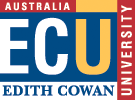COURSE INFORMATION
Disclaimer
This course information may be updated and amended immediately prior to semester. To ensure you have the correct outline, please check it again at the beginning of semester.
| V68 Bachelor of Education (Primary to Middle Years) | |||||||||||||||||||||||||||||||||||||||||||||||||||||||||||||||||||||||||||||||||||||||||||||||||||||||||||||||||||||||||||||||||||||||||||||||||||||||||||||||||||||||||||||||||||||||||||||||||||||||||||||||||||||||||||||||||||||||||||||||||||||||||||||||||||||||||||||||||||||||||||||||||||||||||||||||||||||||||||||||||||||||||||||||||||||
INTRODUCTION The Bachelor of Education (Primary to Middle Years) qualifies students to teach at junior, middle, upper primary levels and lower secondary levels in two learning areas. The award is granted after the successful completion of four years of full time study and aims to develop professional knowledge, skills and attitudes.
The degree includes compulsory units studied by all students and units which are chosen by students to enable them to specialise in a particular learning area or combine a number of related areas of study.
Students are required to complete 32 units as follows:
2 learning areas x 4 units
TYPES OF UNITS
Education Studies Studies in the theory of education, educational psychology, teaching studies and practice, and in specialised fields of education such as special education, educational management and aboriginal education. Education studies are compulsory units.
Curriculum Studies Study of syllabuses and related teaching methods in the curricula of early childhood, the middle years of schooling and early adolescence. Curriculum studies may consist of compulsory or elective units.
Electives Students may choose from a variety of learning areas in their second year of study. These units provide the opportunity for students to pursue interests, skills and knowledge that will be of benefit to them as teachers.
PROFESSIONAL PRACTICE The Bachelor of Education (Primary to Middle Years) course requires students to spend a substantial period of time observing and teaching in schools/centre/community programs as part of a coordinated program of practice teaching.
Because of its responsibility for the education, safety and well-being of children in schools and centres, the teaching profession demands the highest professional standards and personal ethics of practitioners.
Before students are able to practise in schools they are required to submit a Department of Education Crim Trac Police Clearance.
Please refer to Professional Practice Information, Procedures and Rules (Early Childhood, Primary, Secondary) following the description of the Bachelor of Education (Primary to Middle Years) for further details on professional practices.
SPECIAL ADMISSION REQUIREMENTS: In addition to the traditional admission pathways for school leavers and mature-age applicants, the University also offers alternative admission pathways designed to meet the needs of specific groups of prospective students. Further details may be obtained from Student Administration.
COURSE STRUCTURE |
|||||||||||||||||||||||||||||||||||||||||||||||||||||||||||||||||||||||||||||||||||||||||||||||||||||||||||||||||||||||||||||||||||||||||||||||||||||||||||||||||||||||||||||||||||||||||||||||||||||||||||||||||||||||||||||||||||||||||||||||||||||||||||||||||||||||||||||||||||||||||||||||||||||||||||||||||||||||||||||||||||||||||||||||||||||
| |||||||||||||||||||||||||||||||||||||||||||||||||||||||||||||||||||||||||||||||||||||||||||||||||||||||||||||||||||||||||||||||||||||||||||||||||||||||||||||||||||||||||||||||||||||||||||||||||||||||||||||||||||||||||||||||||||||||||||||||||||||||||||||||||||||||||||||||||||||||||||||||||||||||||||||||||||||||||||||||||||||||||||||||||||||
Last Updated - Higher Education: 31/03/2006 VET: 31/03/2006
